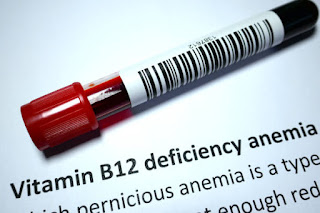Should I take my vitamins before or after my meal or it doesn’t matter?
Vitamins are essential for our health. They help with important functions in our bodies like energy production, immune support, and cell growth. But when is the best time to take them? Should we take vitamins before or after a meal? In this post, we'll answer these questions and give you some tips on when to take your vitamins.
While knowing when to take your vitamins is important, it's not the only thing that matters. There are other factors to consider too, like:
- Being consistent with taking your supplements
- Choosing high-quality supplements
- Understanding your own needs
Our bodies are unique, and what works for one person might not work for another. So it's important to think about these things along with when you take your vitamins.
In this article, we'll focus on the timing of vitamin intake and how it can affect absorption. Specifically, we'll look at two types of vitamins: water-soluble and fat-soluble vitamins.
Understanding Water-Soluble and Fat-Soluble Vitamins
When it comes to vitamins, they can be broadly classified into two main categories: water-soluble and fat-soluble. Understanding this classification is crucial as it directly impacts the optimal timing for vitamin intake.
Water-Soluble Vitamins
These include vitamin C and B-complex vitamins, such as B1 (thiamine), B2 (riboflavin), B3 (niacin), B5 (pantothenic acid), B6, B7 (biotin), B9 (folate), and B12.
- They dissolve in water and are not stored in the body, making regular intake essential.
- Due to their solubility, these vitamins are generally recommended to be taken without food for optimal absorption.
Fat-Soluble Vitamins
This category encompasses vitamins A, D, E, and K.
- These vitamins are absorbed along with dietary fat in the small intestine and can be stored in the body's fatty tissues and liver.
- The presence of dietary fat is crucial for their absorption, making it advisable to consume them with a meal that contains some fat or oil.
Understanding the distinction between water-soluble and fat-soluble vitamins lays the foundation for making informed decisions about when to take specific supplements for maximum benefits.
The Importance of Meal Timing for Vitamin Absorption
Water-Soluble Vitamins: Best Taken on an Empty Stomach
The timing of intake can significantly impact the absorption and effectiveness of water-soluble vitamins, such as vitamin C and B-complex. It is generally recommended to take these vitamins without food for optimal absorption. This is because having food in the stomach can interfere with their absorption, potentially reducing their effectiveness.
Benefits of Taking Vitamin C on an Empty Stomach:
- Enhances absorption as it is less likely to compete with other nutrients for uptake
- Splitting the dosage throughout the day can also be effective for some individuals to maintain steady levels in the body
- Particularly beneficial for those who may experience gastrointestinal discomfort when taking a large dose at once
Tips for Taking Vitamin B-Complex Supplements:
- Consider timing in relation to meals
- Certain components, such as B12, may have reduced absorption when taken with certain foods or beverages
- Coffee and tea contain compounds that can hinder the absorption of B vitamins
- Take vitamin B-complex supplements separately from meals that may contain these potential inhibitors to ensure optimal uptake
By being mindful of the impact of meal timing on the absorption of water-soluble vitamins like vitamin C and B-complex, you can maximize the benefits derived from these essential nutrients.
Fat-Soluble Vitamins: Enhancing Absorption with Dietary Fat
When it comes to absorbing fat-soluble vitamins, dietary fat is key. These vitamins (A, D, E, and K) dissolve in fat and need it to be absorbed effectively by the body.
The Role of Dietary Fat in Absorbing Fat-Soluble Vitamins
The presence of dietary fat in the stomach triggers the release of bile, which helps break down and absorb these vitamins. According to an article from Colorado State University Extension, research has shown that taking fat-soluble vitamins with a fatty meal can significantly enhance their utilization by the body.
Meal Timing and Vitamin Absorption
It's also important to consider when you take your vitamins. Here's what you need to know:
- Take fat-soluble vitamins with a meal that contains some fat or oil to maximize their absorption.
- This could be as simple as adding a drizzle of olive oil to your salad or cooking your vegetables in a small amount of butter or coconut oil.
- By doing so, you ensure that there's enough dietary fat present in your stomach when you take the vitamin supplements.
- This promotes better absorption and ensures that your body can make the most of these essential nutrients.
Specific Recommendations for Taking Fat-Soluble Vitamins
Here are some specific recommendations for enhancing the absorption of each fat-soluble vitamin:
- Vitamin A:
- Essential for vision, immune function, and cell growth.
- Take vitamin A supplements with a meal that contains some dietary fat.
- For example, add a drizzle of olive oil to your salad or cook your vegetables in a small amount of butter or coconut oil.
- Vitamin D:
- Known as the sunshine vitamin, it plays a crucial role in bone health and immune function.
- Optimize its absorption by taking vitamin D supplements with a meal that contains some fat.
- According to Harvard Health, having your vitamin D supplement along with a breakfast that includes eggs or avocado can be beneficial.
- Vitamin E:
- An antioxidant that helps protect cells from damage and supports immune function.
- Ensure its optimal absorption by taking vitamin E supplements with a meal that contains some dietary fat.
- This could be achieved by adding nuts or seeds to your salad or enjoying some avocado alongside your supplement.
- Vitamin K:
- Important for blood clotting and bone health.
- Enhance its absorption by taking vitamin K supplements with a meal that contains some fat.
- For example, include a small serving of healthy fats like olive oil or avocado when taking your vitamin K supplement.
Additional Tips for Better Absorption
Here are a couple more tips to help you get the most out of your fat-soluble vitamins:
- Split the dosage throughout the day: Instead of taking all your fat-soluble vitamins at once, consider dividing them into smaller doses and taking them with different meals. This allows for a consistent supply
Other Factors to Consider When Timing Your Vitamin Intake
When it comes to timing your vitamin intake, there are other important factors to consider beyond the solubility of vitamins. Let's explore some of these considerations:
The Role of Calcium and Its Interplay with Meal Timing
Calcium is a vital mineral that plays a crucial role in maintaining strong bones and teeth, as well as supporting proper muscle and nerve function. The absorption of calcium can be influenced by meal timing and the presence of other nutrients. Here are some key points to keep in mind:
- Different forms of calcium supplements: There are various forms of calcium supplements available, such as calcium carbonate and calcium citrate. These forms have different absorption rates and requirements for optimal utilization.
- Taking calcium supplements with or without food: Calcium carbonate is best absorbed when taken with food, as the presence of stomach acid helps break it down. On the other hand, calcium citrate can be taken with or without food because it does not require stomach acid for absorption.
- The importance of vitamin D: Adequate levels of vitamin D are essential for proper calcium absorption and utilization in the body. It helps regulate calcium levels and promotes its absorption from the intestines. Therefore, it is beneficial to ensure sufficient vitamin D levels when taking calcium supplements.
Iron Absorption: Balancing Meal Timing and Optimal Uptake
Iron is a vital mineral involved in the production of red blood cells, which carry oxygen throughout the body. Optimizing iron absorption is important, especially for individuals at risk of iron deficiency. Here are some considerations for timing iron intake:
- Taking iron supplements on an empty stomach: Iron supplements are generally recommended to be taken on an empty stomach for better absorption. Food, especially those containing substances like phytates and polyphenols found in tea, coffee, and certain grains, can inhibit iron absorption.
- Spacing out iron doses: It is advisable to space out iron doses from meals or other medications, as certain substances can interfere with iron absorption. For example, antacids and calcium supplements should not be taken at the same time as iron supplements, as they can reduce iron absorption.
- Enhancing iron absorption with vitamin C: Consuming foods or drinks rich in vitamin C along with iron supplements can significantly enhance iron absorption. Vitamin C helps convert iron into a more absorbable form, increasing its uptake by the body.
These factors highlight the importance of considering individual nutrient interactions and supplement timing for optimal absorption and utilization. It is also essential to consult with a healthcare professional for personalized advice, especially if you have any underlying health conditions or are taking medications that may interact with certain vitamins.
Remember, meal timing is just one aspect of an overall healthy lifestyle. Consistency in supplementation habits, quality of supplements, and a balanced diet rich in whole foods should also be prioritized for optimal health and well-being.
Iron Absorption: Balancing Meal Timing, Optimal Uptake, and Health Factors
When it comes to iron supplements, timing is key for optimal absorption and effectiveness. Here are some essential points to consider:
1. Taking Iron on an Empty Stomach
The rationale behind taking iron supplements on an empty stomach is to ensure better absorption. When the stomach is empty, there are fewer substances that may interfere with the uptake of iron by the body. This practice helps to maximize the bioavailability of iron, ensuring that a good amount of the supplement is absorbed and utilized.
2. Spacing Out Iron Doses
It's advisable to space out iron doses from meals or other medications. This approach helps to prevent potential interactions that could hinder the absorption of iron. By separating the intake of iron supplements from other substances, individuals can optimize the body's ability to absorb and utilize this important mineral.
3. Enhancing Assimilation with Vitamin C
Consuming vitamin C-rich foods or juices along with iron supplements can significantly enhance the body's assimilation of iron. Vitamin C helps convert non-heme iron (the type of iron found in plant-based foods and supplements) into a form that is easier for the body to absorb. This synergistic effect can be particularly beneficial for individuals who follow a vegetarian or vegan diet, as plant-based sources of iron may require additional support for optimal absorption.
4. Health Factors Impacting Iron Absorption
While timing and complementary nutrients play crucial roles in optimizing iron absorption, it's important to note that certain health factors can also influence this process. Medical conditions such as anemia or gastrointestinal disorders may affect iron absorption. If you have any underlying health conditions, it's advisable to consult with a healthcare professional who can provide tailored guidance on managing iron intake and absorption.
By carefully considering the timing, complementary nutrients, and potential health factors, individuals can ensure that their bodies effectively absorb and utilize iron supplements, supporting overall health and well-being.
Conclusion
Understanding the difference between water-soluble and fat-soluble vitamins is crucial in determining the best time to take them. Here are some key points to remember:
- Timing: Water-soluble vitamins are generally recommended to be taken on an empty stomach for optimal absorption, while fat-soluble vitamins are best absorbed when consumed with a meal containing some fat or oil.
- Consistency: It's important to establish a regular routine for taking vitamins to maintain consistent levels in the body.
- Quality: While supplements can be helpful, it's always best to prioritize getting nutrients from a balanced diet of whole foods.
- Individual Needs: If you have specific health concerns or are taking medications, it's a good idea to consult with a healthcare professional who can provide personalized guidance on vitamin supplementation.
By being mindful of these factors and making informed choices, you can maximize the benefits of vitamins and support your overall well-being.



